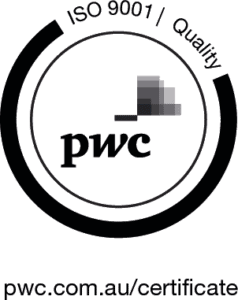What does it mean to be a “Quality Business”? The benefits of Certification to ISO Standards beyond contract requirements
In today’s highly competitive marketplace, most businesses strive to distinguish themselves by trying to deliver exceptional products and services. While the primary goal for any organisation is to satisfy customer demands and generate profit, a select few go above and beyond by pursuing excellence in all aspects of their operations. These organisations are known as “quality businesses,” and they have a profound understanding of the importance of implementing one or more ISO Management System Standards and achieving Certification.
But what exactly does it mean to be a “quality business”? Is it merely meeting the minimum requirements outlined in the ISO Standards, contracts and regulations, or is there something more? In this blog, we will delve into the concept of a quality business and explore six benefits that come with achieving Certification beyond contractual obligations.
What is a “Quality Business”?
At its core, a quality business places paramount importance on customer satisfaction, efficient operations, continual improvement, and the pursuit of excellence in all the business does. It’s recognised that the key to long-term success lies in providing products and services that consistently meet or exceed customer expectations, while also adhering to firm policies and processes.
Achieving Certification to one or more ISO Management System Standards serves as a hallmark of a quality business. It signifies that an organisation has established and implemented a comprehensive management system, conforming to globally recognised standards of business best practices. While having ISO Certification may be a requirement in certain industries or for specific contracts, the benefits of achieving Certification extend far beyond mere compliance.
Let’s find out six ways your organisation benefits from becoming a “quality business” beyond contractual requirements.
_______________________________________________________________________
Achieving Certification to one or more ISO Management System Standards opens doors to new business opportunities with organisations and industries that prioritise quality and compliance. It’s a way businesses can demonstrate their ability to meet internationally recognised quality benchmarks, increase their chances of securing robust contracts, and secure partnerships with prestigious clients.
There’s nothing wrong with pursuing Certification for contract purposes. However, it’s important to understand all the benefits so you can make the most of the time and money invested in this process, so let’s have a look:
1. Increased efficiency and reduced costs
First and foremost, the ISO Management System Standards promote the implementation of streamlined processes and optimised workflows, eliminating redundancies and waste. By adopting internationally recognised best practices, businesses can improve productivity, minimise errors, and enhance resource utilisation. This ultimately results in cost savings through reduced operational expenses, improved resource allocation, and optimised time management. Implementing ISO Standards acts as a catalyst for organisations to identify and implement efficiency-enhancing measures, leading to tangible financial benefits and improved overall performance.
Additionally, the Certification process requires organisations to conduct regular and thorough assessments of their processes and systems. This evaluation enables businesses to identify areas with opportunities for improvement, or where costs can be reduced, such as eliminating unnecessary steps, optimising supply chains, and streamlining operations. By continually monitoring and improving their efficiency, organisations can achieve long-term cost reduction, allowing them to allocate resources more effectively and invest in strategic initiatives that contribute to their growth and competitiveness in the marketplace.
2. Enhanced credibility and reputation
By achieving Certification to one or more ISO Management System Standards, it demonstrates to the market a commitment to meeting internationally recognised standards. It serves as a clear statement to clients, partners, and stakeholders that the business operates with a high level of professionalism and adherence to international best practices. The Certification acts as an independent verification of the organisation’s ability to consistently deliver quality products and services. This enhanced credibility not only strengthens existing relationships, but also attracts new customers who prioritise working with reputable and reliable partners.
Furthermore, a certified organisation is seen as a trustworthy and dependable entity, capable of meeting customer requirements and delivering on promises. This reputation can lead to increased customer loyalty, positive word-of-mouth recommendations, and a competitive advantage in the industry. ISO Certification acts as a powerful differentiator, positioning the organisation as a preferred choice for clients and partners who value quality and reliability.
3. Improved customer satisfaction

By implementing one or more ISO Management System Standards, businesses prioritise quality management and customer-centric practices. This commitment to meeting customer needs and expectations leads to enhanced client satisfaction levels. ISO 9001:2015 Quality Management Systems, in particular, provides a framework for organisations to consistently monitor and improve their processes, ensuring that products and services meet or exceed customer requirements. By focusing on customer needs, businesses can build strong and long-lasting relationships with their clients, leading to increased loyalty, repeat business, and positive referrals.
This is possible because the ISO Management System Standards, especially ISO 9001:2015, promote a culture of continual improvement and customer feedback. Quality businesses actively seek customer input, enabling them to gather valuable insights and identify areas for improvement. By listening to customer concerns, suggestions, and preferences, businesses can make informed decisions and adapt their offerings accordingly. This customer-centric approach results in customised solutions, better communication, and higher overall satisfaction levels.
How to improve customer satisfaction with ISO 9001:2015
Interested in knowing more about how you can increase your customer satisfaction levels with ISO 9001:2015? Check out this blog!
4. Regulatory compliance
ISO Management System Standards provide requirements for maintaining compliance to and staying up-to-date with regulatory obligations. Achieving Certification demonstrates commitment to legal and ethical boundaries, mitigating compliance risks and avoiding penalties. It builds trust, establishes a strong reputation, and promotes credibility with stakeholders.
Furthermore, Certification provides organisations with a robust process to help them proactively identify and address compliance gaps, reducing the likelihood of legal complications. By embracing the requirements of the standards, businesses can establish a solid foundation for responsible and sustainable operations, safeguard their reputation and position themselves as reputable entities within their industry.
5. Continual improvement culture
Incorporating a culture of continual improvement in line with ISO Management System Standards is imperative for businesses seeking success and prominence in an ever-changing marketplace. The current business landscape demands adaptability as a vital component for survival and growth. A culture of continual improvement fosters an organisational mindset characterised by agility and resilience.
Through consistent evaluation and adjustment of processes, businesses can proactively navigate market fluctuations, embrace technological advancements, and cater to evolving customer needs. This adaptability empowers organisations to anticipate future challenges and capitalise on emerging opportunities, enabling them to remain at the forefront of their respective industries.
How to facilitate Continual Improvement with Internal Audits
Want to learn how you can facilitate continual improvement with Internal Audits? Read about it here.
6. Increased employee satisfaction
By implementing one or more ISO Management System Standards, businesses can demonstrate their commitment to creating a conducive work environment that prioritises employee well-being and engagement. When employees see that their organisation values their input and invests in their professional development, it leads to higher job satisfaction, increased morale, and a sense of pride in their work. Ultimately, increased employee satisfaction translates into improved productivity, reduced turnover rates, and a more motivated workforce.
When employees feel valued, supported, and empowered, they are more likely to be more motivated, engaged, and committed to the success of the organisation. This, in turn, promotes effective communication and collaboration, fostering a positive work culture that encourages employee involvement and participation.
________________________________________________________________________
Even when understanding the benefits of implementing the ISO Standards, we appreciate that the path to Certification Readiness can be complex and, at times, overwhelming – but we’re here to help you!
Our team of consultants are experts in developing effective management systems, and are passionate about helping businesses achieve and maintain their Certifications, as well as identifying areas where the business can improve. Since our establishment in 2007, every business that has implemented our process has achieved certification on their first attempt.
With over 15 years of experience and a 5-Star Google Rating, our Consulting team can help you achieve and maintain your Certifications to the main ISO Management System Standards. Call us now on 1300 614 007, email us, or book your online FREE Strategy Session to solve any further questions about the Certification Process, or to discuss a tailored solution for your business.
About the author
Andressa (alias Andy) is the General Manager of ISO Certification Experts and ICExperts Academy, heading our Marketing department and coordinating the internal improvement initiatives and projects. With an MBA in Project Management, and over 10 years of experience in customer service and project management across many industries, she brings valuable knowledge to the business and our operations. Alongside her professional expertise, Andressa holds a genuine passion for sustainability and the environment.
All information on this blog site is for informational purposes only. As this information is based on our professional experience, opinion, and knowledge, we make no representations as to the suitability of this information for your individual business circumstances. Especiality Pty Ltd trading as ISO Certification Experts and all related businesses and brands will not be liable for any errors, omissions, legal disputes or any damage arising from its display or use. All information is provided as is, with no warranties and confers no rights.
We will not be responsible for any material that is found at the end of links that we may post on this blog site. The advice, ideas, and strategies should never be used without first assessing your own personal business situation or seeking professional and/or legal advice. Information may also change from time to time to suit industry and business needs, requirements and trends.


















